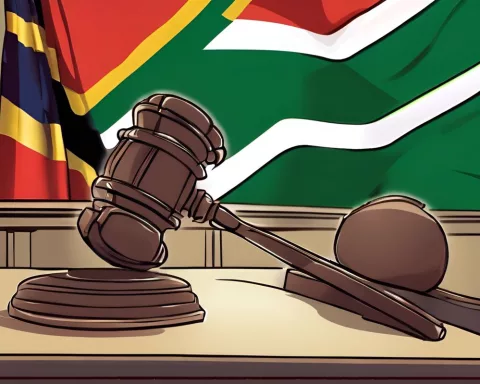In response to the ongoing taxi strike in Cape Town, the City has announced measures to tackle the violence that has resulted in significant disruptions to daily life and public transportation.
Impounding Vehicles for Vandalism
Alderman JP Smith, a City Council member for safety and security, stated that the City will impound 25 vehicles for every truck, bus, or facility that is burned or vandalized. The strike has resulted in several buses, trucks, and other vehicles torched, stranding thousands of commuters.
Violence Escalates Across the Province
The South African National Taxi Council (Santaco) called for a taxi stay-away across the province, supported by eight regional associations. The violence has rapidly escalated, with incidents of burning tires reported in Atlantis, Bloekombos, Witsand, and Borcherd’s Quarry, while another vehicle was set alight in Langa and stone-throwing took place along the N7 near Dunoon.
High-Visibility Presence in Hotspot Areas
The City has maintained a high-visibility presence in all hotspot areas, working closely with the police to monitor and respond to potential incidents. Mayor Geordin Hill-Lewis directed Alderman Smith to ensure that the violence perpetrated by some in the public transport sector is met with a suitable response.
Lack of Consideration for Others
To provide safe passage for commuters, bus services have been escorted by security personnel. The events that have transpired since the strike began highlight the taxi industry’s lack of consideration for others. Their callous attacks on public transport vehicles, infrastructure, and road users have sadly become a standard part of their tactics.
Standoff Over Traffic By-law
The standoff between taxi associations and the City is rooted in a traffic by-law that empowers officers to impound vehicles instead of issuing fines. In an attempt to resolve the issue, Santaco, taxi bosses, and Police Minister Bheki Cele held a closed meeting on Thursday.
Police Forces Stretched Thin
Cele said that he tried to persuade the taxi operators to halt their strike action, citing three crucial events in Cape Town that require security, including the Netball World Cup. Police forces have been stretched thin, diverted from their primary tasks to deal with the strike-related chaos.
It is evident that the ongoing taxi strike in Cape Town has caused significant disruptions to daily life and public transportation, with both the City and the police struggling to mitigate the violence and ensure the safety of residents. As the taxi industry continues to disregard the well-being of others, it remains to be seen whether the City’s new impoundment strategy will lead to a resolution or further escalate tensions in the already volatile situation.












